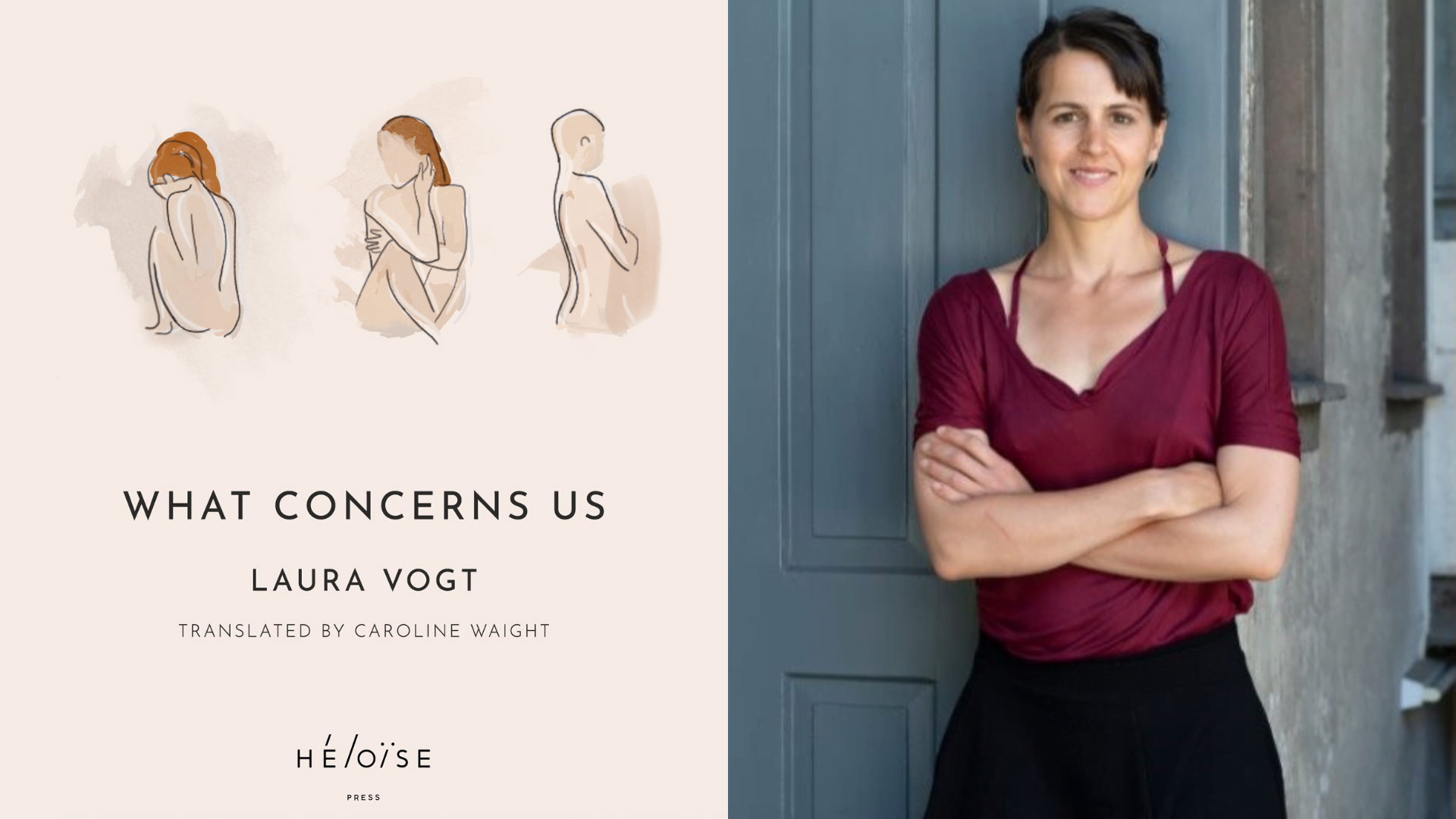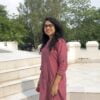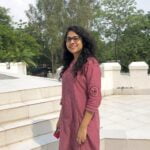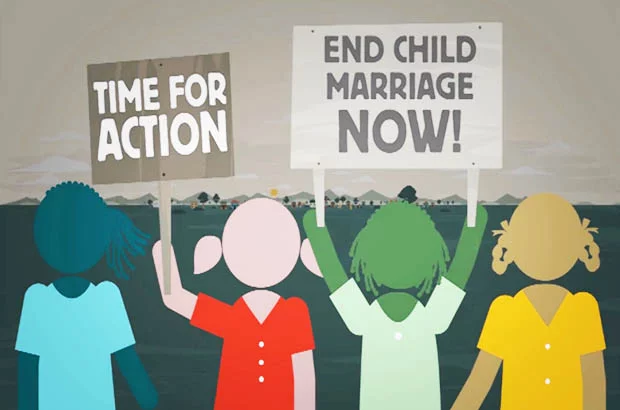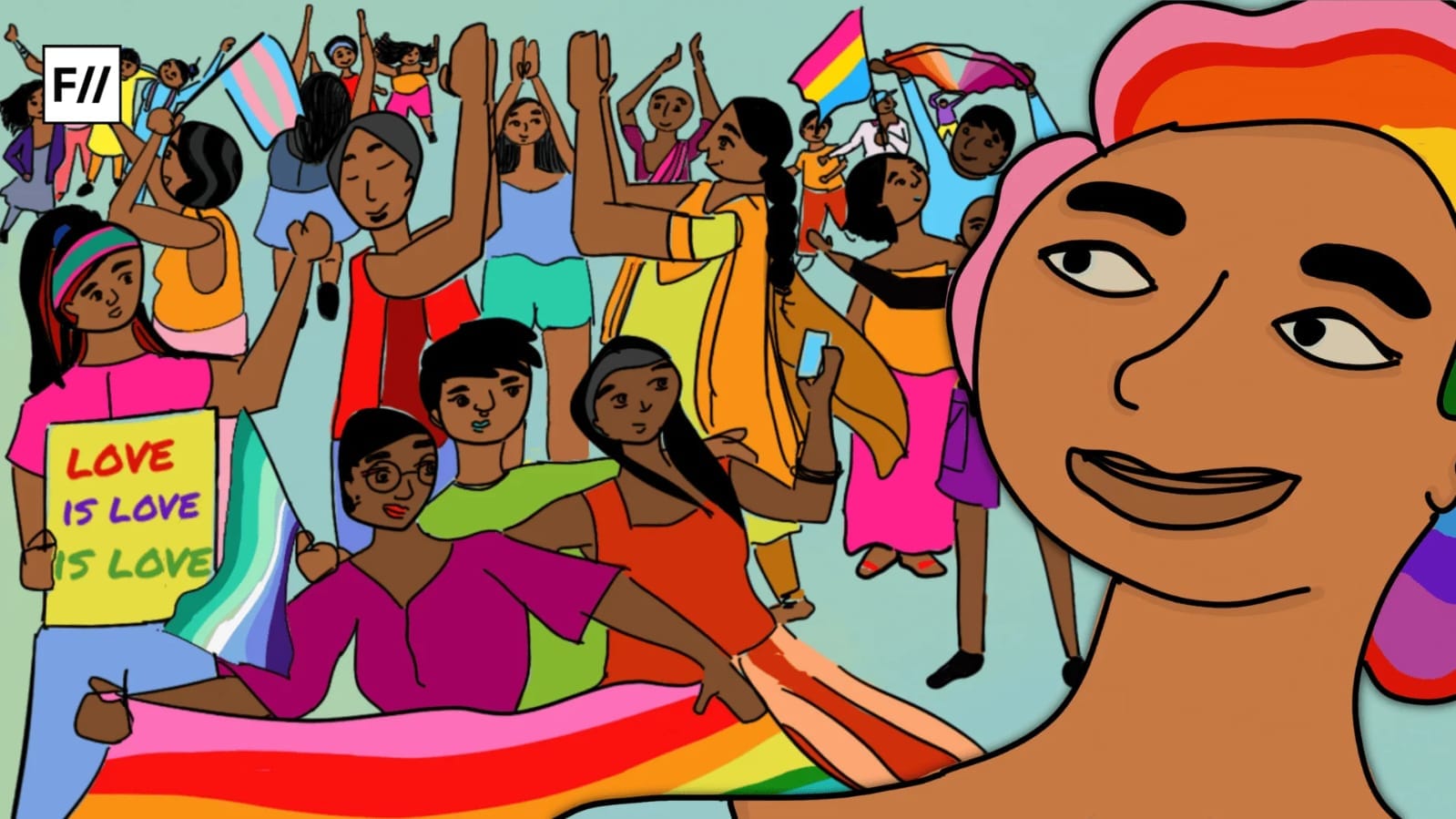A mother is first a human. Laura Vogt’s gripping novel titled, What Concerns Us (translated from German by Caroline Waight; published by Héloïse Press, August 2022) opens up a universe inhabited by three women who, despite their biological connection, lead disparate lives.
The fates of Verena, Rahel, and Fenna take a dramatic turn when the man they are all related to walks out of their shared home. Erik is Verena’s husband and a father who disappears on his daughters — one born, the other still on its way. Interestingly, this man’s act of disappearance does not automatically spell doomsday for the women left behind, and this consciousness forms the foundation of What Concerns Us.
A mother is first a human. Laura Vogt’s gripping novel titled, What Concerns Us (translated from German by Caroline Waight; published by Héloïse Press, August 2022) opens up a universe inhabited by three women who, despite their biological connection, lead disparate lives.
Rules of ‘mothering’
Laura Vogt began writing What Concerns Us two months after the birth of her first child. The reader cannot be sure if Vogt relies on her lived experience and embodied reality in weaving the story that unfolds between a mother and her two daughters in this book. What does come across clearly is Vogt’s unwavering effort in unravelling the layers of motherhood that are either insufficiently explored or dismissed as being frivolous concerns.
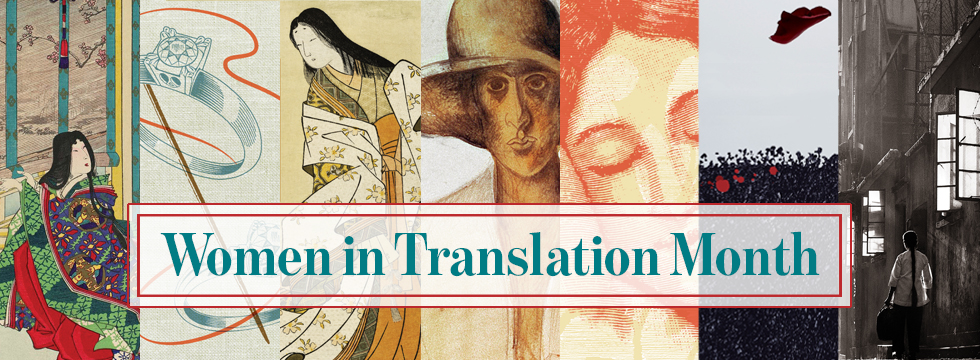
For instance, a woman’s angst in coming to terms with her changing anatomy during and after pregnancy has been dealt with humanely. Placing a woman on a pedestal after she assumes a maternal identity must be questioned. What is conveniently forgotten in the process of deification is the simple fact that she is human and she is in pain.
In the book, when Rahel finds herself at sea because she doesn’t know what to do with her second-born child, who she thinks is “too big”, it is evident that the author is exploring a mother’s real concerns about parenting, which again does not come ‘naturally’ to a woman. It is unfair to expect her to take on the role of a ‘nurturer’ by default, and that too without any inhibitions.
The reader cannot be sure if Vogt relies on her lived experience and embodied reality in weaving the story that unfolds between a mother and her two daughters in this book. What does come across clearly is Vogt’s unwavering effort in unravelling the layers of motherhood that are either insufficiently explored or dismissed as being frivolous concerns.
A mother has every right to express her unfamiliarity and discomfort with the overwhelming exercise of child-raising. Contrary to the social construct (romanticised too!) that motherhood ‘completes’ a woman, it actually leaves her feeling exhausted, scattered, and ‘incomplete’. She could well be on a quest to find her true ‘self’ after bringing another human to life out of her own body.
The curious case of ‘missing’ fathers
A seven-month pregnant Rahel meets a Zurich-based author at a book launch. Boris, whose given name is Wolfgang and who writes under the pseudonym ‘Wolf Knupp’, is the third man in Rahel’s life, who promises to stay for a while, at least till the end of What Concerns Us.
At twenty-seven, Rahel decides to “find a father” when Martin, the actual father, flees upon hearing the news of Rahel’s pregnancy. There are obvious parallels between the scenarios in which the fathers go ‘missing’ from both Rahel and her soon-to-be-born child’s lives. Rahel was five years old when Verena, her mother, was seven months pregnant with Fenna. “We’ll be a women’s shelter, the three of us,” Verena had announced, putting up a brave front after Erik moved out.

Years later, Rahel’s ‘scientific’ way of dealing with the discovery of her own pregnancy is unique. Terms like embryology, oocyte, spermatozoon, etc., that she keeps regurgitating signal Rahel’s objective, practical, and detached engagement with the whole motherhood business. This is contrary to the ‘emotional rush’ that new mothers otherwise (ought to) experience.
Fatherhood doesn’t demand the man to sacrifice his freedom. Motherhood does. Verena reinforces this sentiment when she reveals to her daughters much later in life: “I was a mother, so I was trapped. But he was free.”
Literature meets music
Both Rahel and Boris are connected by their love for writing. For Rahel, it is lyrics. For Boris, who is also a freelance journalist and works as a German teacher at a small language school, language is the path that leads to a specific destination. Rahel, on the other hand, is more drawn to the journey, picking up and absorbing sounds, sights, and smells along the way.
Rahel is a musician who is aware her “couple of gigs with her band, the weekend job at a café, and the weekday shifts at the supermarket” would not sustain her and her baby. With Boris offering his place in Gesswil to Rahel, things seemed to work themselves out. After all, aren’t literature and music supposed to strike a chord and co-exist in harmony?
Filling the gaps
For Rahel, singing was a way of bidding goodbyes, which is why all her songs were about her father, Erik. This was her way of dealing with his absence. Later, she turned her back on music after the birth of her first child, Rico.
Having moved in with Boris after marriage, she thought there was nothing missing in her life, and there was no gap or void which had to be filled with tunes and melodies. She embraced the ‘contentment’ of being in a traditional family life, which was denied to her while she was growing up in an all-female household.
By the end of the book, however, Rahel is struck by a new awakening, which sort of draws inspiration from Virginia Woolf and even Maya Angelou. She writes in her notebook of collected, scattered, fragmented, brittle words, “What I know now: it’s not a house of my own I need but a roof, a place to write, to be…to let what arises arise.”
Need vs want
Verena didn’t want Erik, but needed him as a father for her children. The institution of marriage doesn’t convince Rahel’s sister Fenna, who is resolute not to take the pregnancy test because she knows herself too well to rely on a piece of plastic.
Contrary to her mother, Fenna doesn’t need a man but wants one. For Fenna, who understood what the French feminists were advocating when they talked about the legalisation of abortion so women could exercise their right over their bodies, “she couldn’t equate the control it (the pill) had given her with a right.”
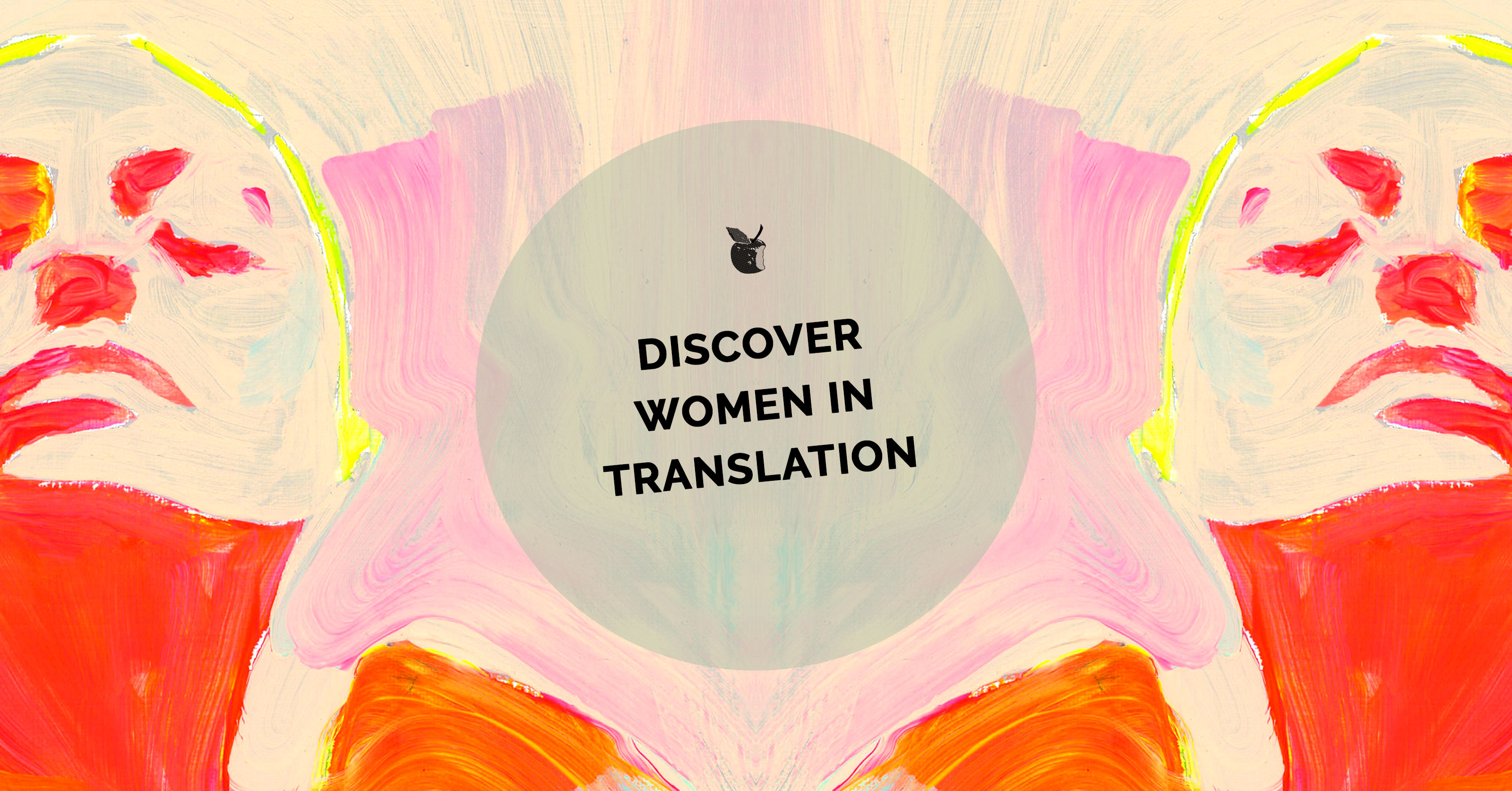
In fact, the opposite made her feel more emancipated, as the author observes: “by coming off the pill, she had wrested the power back. She had liberated herself from hormones she had to swallow, hormones that had changed her in ways that in hindsight seemed drastic…she had become more independent.”
Fenna wishes for a “dynamic kind of love, one with space” and boundaries. Tangible reality matters to Rahel, while Fenna is more of the cosmic kind. If routine was soothing to Rahel, unpredictability was Fenna’s game.
Forced sex and lesbianism
Among a number of thematic concerns that Vogt delves into, the questions of forced sex, sexual agency, and consent are raised with caution and care. Fenna, for instance, is not certain whether Luc had sought her consent to intercourse, or was it a power game between the two where Fenna felt ‘sorry’ for him and let him ‘perform’ what is expected from a ‘masculine’ man?
The fact that the dilemma remains unaddressed till the end of the story confirms that not everything is always either white or black. The subtlety and maturity with which Vogt broaches the subject of lesbianism too are devoid of unnecessary scrutiny.
Verena’s relationship with Inge and even Rahel’s intimacy with Maya, her musician friend in Bern, are not discussed through the prism of shock and judgement. Of course, these equations lead to pointed questions, but there are no right or wrong answers that are being thrust on the readers. What Vogt impartially presents are multiple perspectives and interpretations. It is up to the readers how they wish to perceive the given situation and reality.
Craters, crevasses, and rough edges
As seasons change in Switzerland, life turns a new page for the women in What Concerns Us. There are several moments the characters encounter to arrive at a clearing. What trails, nonetheless, like a shadow is their past. The past is not like the leaves that are shed from trees with transitioning seasons; instead, it takes root and gnaws at their inner core every now and then.
Life is a cratered terrain. It’s not always about returning; it’s sometimes about meeting in the middle, too, reminds Fenna as she shares the news about Verena’s breast cancer with Rahel. Things have been bitter between Rahel and Verena ever since Erik left. Years later, when the three women get together at Rahel and Boris’s home in Gesswil, the unattended box of unanswered questions and unresolved issues is opened.
Verena clarifies that she wasn’t hurt because she would become financially vulnerable after Erik’s exit, but she realised that a beautiful relationship was on the verge of collapsing, and the emotional anchor was losing its strength.
The below conversation highlights Rahel’s dilemma as a child and Fenna’s condemnation of an escapist father.
“You missed it, then, having a traditional family?”
“We could have used a bit of masculinity.”
“You mean a man? Interjected Fenna.”
“A paternal figure, Rahel said.”
This is an important episode which brings up the age-old tussle between biology and socialisation. A paternal figure, as Rahel points out, is different from having a ‘man of the house’. Vogt does an exceptional job as a writer, along with Caroline Waight’s astute and perceptive translation, to lay bare the intricacies and complexities in understanding the difference and/or similarity between the duties of parenthood and privileges of masculinity. It could be tricky to know where one began, and the other ended.
Much like Verena, who wants her daughters to “appreciate the rough edges” of life and not “polish those edges away,” What Concerns Us too reminds us to look for perfections in imperfections.
Also read: Mental Health, Gender And Survival: Engaging With Sylvia Plath’s Literary Universe
Featured image source: AyseYavas and Héloïse Press
About the author(s)
With over 10 years’ experience in publishing and journalism, Ipshita Mitra has a Bachelor’s degree in English Literature from Miranda House, DU and holds a PG Diploma in English Journalism from IIMC. She did her MA in Gender and Development Studies and is currently pursuing her PhD in Gender Studies from IGNOU.
She has worked with The Times of India, The Asian Age, The Quint, Om Books International, World Monuments Fund India Association, and The Energy and Resources Institute (TERI). In 2016, her short story ‘Cacophony of Silence’ was published by Nikkei Voice, a Canadian-Japanese newspaper. In 2020, her short story ‘Bohemian Sailor of the Gulf’ was published by Sublunary Editions, a Seattle-based independent publisher. The Indian Quarterly (April–June 2021) published her short fiction, ‘Kabuliwala Returns’. She writes on books, culture, environment, and gender for TerraGreen, The Hindu, Scroll.in, The Wire, Wasafiri, Firstpost, Huffington Post, India Currents, and others. She tweets @ipshita77.
